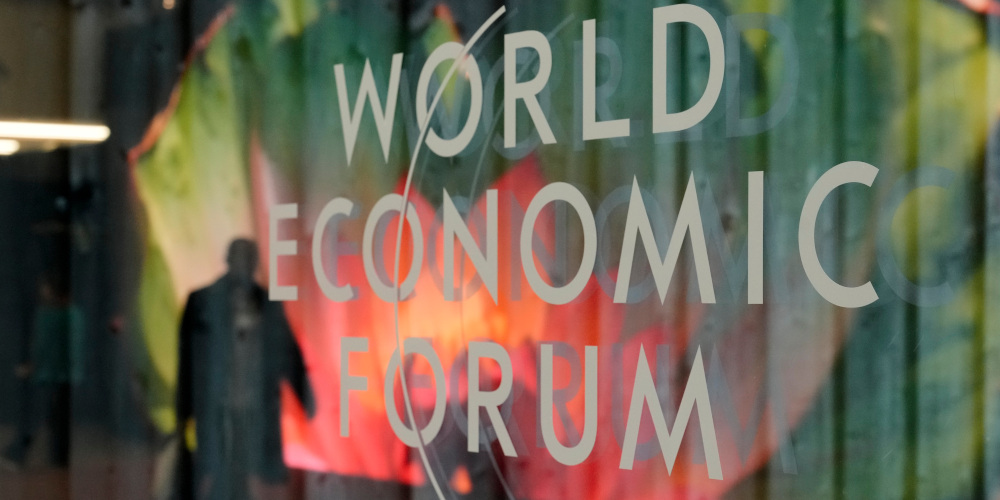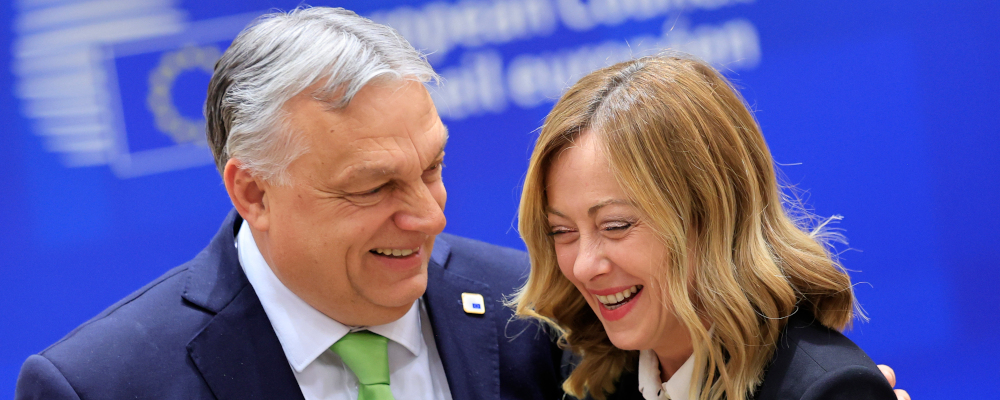In the latest Hub book review, Patrick Luciani takes a look at Democracy Erodes from the Top: Leaders, Citizens, and the Challenge of Populism in Europe, by Larry M. Bartels (Princeton University Press, 2024), which tries to assess just how much of a threat populism is to European democracy.
Those who have followed European politics over the past 15 years no doubt felt a significant decline in support of liberal democracy. These years were marked by the emergence of populist governments in Poland and Hungary and the seismic Brexit event in 2016. In Western Europe, the growing popularity of Marine Le Pen in France, the right-wing government of Giorgia Meloni in Italy, Vox in Spain, and the recent rise of Chega in Portugal have only strengthened this perception.
Numerous factors have contributed to Europe’s radical shift towards anti-elitist and anti-establishment parties. The economic disruptions of globalization, the influx of unregulated immigration from North Africa and Middle Eastern countries, and the alarming rise in crime have all played a significant role. Even in the traditionally stable and peaceful Scandinavian countries, immigration has strained the tolerance and budgets of generous social welfare programs.

This situation has led to a widespread belief that traditional democratic institutions have failed to address the urgent need for reforms. The disillusionment with democratic liberalism is borne by Pew data and further amplified by Hungary’s Viktor Orban’s declaration that “the era of liberal democracy is over,” a sentiment that gained traction after the election of Donald Trump in 2016.
But those on the political Right aren’t the only ones dissatisfied with liberal democracy. Those on the progressive Left are perhaps even more disappointed with democratic liberalism’s very roots, which entrenched individual rather than group rights based on identity politics. Ireland’s recent rejection of a change in its constitution’s wording to incorporate group rights is a case in point. What was supposed to be an easy victory for Ireland’s political elites in redefining the meaning of relationships and the role of women in the home was solidly rejected by a public suspicious of an attack against traditional values.
Though parties on the extreme Right in Europe have increased their vote count, they have yet to see their support garner more than 10 to 20 percent of the popular vote in most countries.
In his new book on the erosion of European democracy entitled Democracy Erodes from the Top, Larry Bartels, a political science professor at Vanderbilt University, challenges the prevailing notion that the public is the catalyst for radical reform. He is one of the rare thinkers who goes against the prevailing wisdom that the public is driving radical change in Europe.
His extensive research, covering 23 European countries over the last 15 years, reveals a stark contrast between the perceived crisis of democracy and Europeans’ actual attitudes. Contrary to popular belief, support for democracy as a system of government has not weakened, and trust in national parliaments and politicians has remained virtually unchanged. Both go against conventional wisdom and general perception.

The real culprits for the turmoil and European political troubles, or what Bartels calls “political backsliding,” lie not with ordinary citizens but with political elites. The author doesn’t conclude that citizens are passive agents in the demand for political change and play no role in demands for democratic reforms. He observes that we tend to exaggerate the threats of populism and the alarmism that comes with it.
He reminds us that the financial collapse of 2008 was routinely compared to the crisis in the 1930s, yet by 2014-15, average satisfaction with the economy in Europe was higher than before the crisis and continued to improve until COVID-19 hit in 2020. Public support for European integration held steady during the Euro crisis in the early years of the 21st century, and even under the threat that Greece would leave the Eurozone.
What about the highly contentious problem of immigration? Where one would expect a deep deterioration of support and demand for more restrictions, Bartels sees little evidence in public surveys that immigration and asylum-seeking have produced “any significant erosion in public attitudes toward immigrants.”
The author reminds us that warnings about the collapse of democracy are hardly rare. Popular and scholarly writings about the crisis of democracy have a long history and can be found in articles in Foreign Affairs from the 1930s. Most recent books on the rise of populism, such as David Runciman’s How Democracy Ends, have been inspired by Trump’s election in the U.S. or Bolsonaro in Brazil and the threat they and other populist leaders pose to liberal democracies. But populism is a notoriously difficult concept to define. Populists too often make the mistake of believing they are fulfilling the “will of the people” and find there is no such thing. Professor Bartels reminds us trying to discern what people truly believe is hard work.




